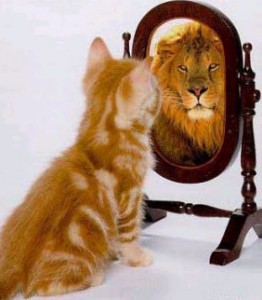I’ve recently re-learned how to read, and it’s making a tremendous difference. Just like everyone else, I’ve been reading since a very young age, so it’s a pretty easy and simple process for me. Maybe not quite like everyone else, I read a lot—about 80-90 nonfiction books a year, not to mention the daily paper plus weekly and monthly magazines.
Unfortunately, I’ve always had the nagging feeling that a lot of that reading time has been completely wasted. I’ve read so much that most of it goes in one eye and out the other. Immediately after putting down a book I’d be hard pressed to summarize the key theme or the important ideas in it. I really knew I was having a problem when I bought a book on Amazon because it looked interesting, only to realize I already had it on my shelf and had already read it a few years before!
 What are you proud of? When you go home and talk about what you did that day, what do you say? If you were to run into a respected former teacher, what would you talk about?
What are you proud of? When you go home and talk about what you did that day, what do you say? If you were to run into a respected former teacher, what would you talk about?
Pride is one of the most powerful motivators in human endeavor. People will do things that are against their objective self-interest because of it; they will dare great things because of it; they will persevere in the face of pain, exhaustion and ridicule for it; they will die for it.
Pride resides in the top of Maslow’s pyramid, in esteem and self-actualization needs. Pride is the bedrock of intrinsic motivation, which is the only way you can truly “persuade” someone—all else is merely a commercial transaction.
In business, “An intrinsic feeling of pride based on the relentless pursuit of worthwhile endeavors is a lasting and powerful motivating force,” as Jon Katzenbach reminds us in Why Pride Matters More than Money.
Such a powerful tool should definitely be in your toolbox for persuasive speeches, but its very power means that it must be handled with extreme care.
There are many sources of pride. It can be individual pride, such as rising to a challenge, or sticking with personal values in spite of sacrifice, or doing the right thing for other people, or professional pride in work well done.
For speakers, group pride is even more important than individual pride, because our success as a species is a direct result of our ability to work collectively. In addition, the specialization inherent in a modern economy means that getting things done almost always requires group effort.
History if full of magnificent examples of pride appeals. Themistocles appealed to personal and Athenian pride and convinced its richer citizens to build the triremes that saved western civilization at Salamis. More recently, Churchill used it masterfully in his “Finest Hour” speech. JFK told us that we choose to go to the moon, not because it is easy, but because it is hard.
One of the best—albeit fictional—examples is Henry V’s speech before the battle of Agincourt—but when Shakespeare is your speechwriter, how can you go wrong?
Probably nowhere is the pride appeal more commonly used than in sports, however. The pre-game speech is practically a requirement for any self-respecting sports movie. You can easily lose yourself in the countless examples to be found on YouTube, so for those pressed for time, I suggest this one: Forty Inspirational Speeches in Two Minutes.
More seriously, when you examine those speeches, they contain several basic elements:
First, the purpose of the pride appeal is not really to motivate your listeners; it is to remind them of the reason they need to motivate themselves. You can do this by reminding them of what they have achieved and earned through sacrifice and hard work, and what makes them special. But you can’t stop there, because that can lead to complacency or arrogance. The essence of persuasion is making your audience aware of a gap that they feel they have to close. And by stressing that all eyes are on them, it leaves them no choice but to rise to the occasion.
The gap can be a positive one, such as they have come this far but they are capable of more, or their hard work has earned them this opportunity to take the final step: From Miracle on Ice, “Great moments are born from great opportunity, and that’s what you have here tonight. That’s what you’ve earned here tonight.”
The gap may be a negative one: those guys out there want to take that away from you. From Rudy, “No one comes into our house and pushes around.”Because losses tend to loom larger in our minds than equivalent gains, negative framing can be very effective. Scaring—or even shaming—your audience can be very effective, but only if they have confidence that they can deal with the threat. In We Are Marshall, the coach tells his team that the other team is bigger, faster, and more experienced…but they don’t have the heart that the Marshall players have.
Extensive use of the word we: “We few, we happy few, we band of brothers…” This word draws a circle that brings you and the audience together and makes everyone feel special, and united in their determination.
A call to action: up to this point you have revved up the engine; it’s time to point your audience in the right direction and let them go. They will do the rest.
Keep in mind that the emotional power of the pride appeal means it must be handled with great care. Dale Carnegie said, “The appeal to pride if done skillfully, has a force only a trifle less potent than TNT.” By implication, it can backfire if done clumsily. Make sure you know your audience and strike the right tone.
You have to know your audience. Individuals and groups take pride in different things. Once a competitor of mine tried to appeal to the national pride of his audience (his compatriots), and it backfired on him because they took pride in their globalism. Before a presentation, do your homework, research their history, but also test your initial findings against reality. For example, you might find the company’s vision and values on their web site, only to find that when you appeal to those during your presentation that the listeners are very cynical about them. Get someone from the target group to give you inside information on what people are proud of and what they will respond to.
Strike the right tone. In general, it’s better to undershoot than to overdo it. It does not have to be the chest-beating pride you see in sporting events. Even a subtle reminder of what they stand to gain or lose can spur powerful emotions, but overdoing it might cause people to be embarrassed and react against your efforts. For a humorous example of what happens when you don’t connect check out Bluto’s speech in Animal House.
In closing, let me remind you what is at stake for all of us who have been given the privilege of addressing an audience to move them to worthwhile action. Through hard work, long preparation, knowledge and passion, we have earned the opportunity to make the world a better place. All eyes are on us. Let’s make them proud.
Anyone who has customers and wants to keep them should read this book. First, because your customers are probably not as happy as you think they are, and second, because they can do a lot of damage when they’re unhappy.
They’re not happy
We have an old saying around our house, “If Mama ain’t happy, nobody’s happy.” Substitute the word customers and you might want to put those words on a poster in your workplace. Customers today are unhappier than they’ve ever been. Here are some highlights from the book:
In my previous article, I wrote about how critically important it is to put in the right kind of hard work over time to accomplish anything worthwhile. This article provides one more example that proves anything is possible.
Back in the early 90s, I worked for a sales training company that brought in a new guy who was supposed to be groomed to eventually take over the company from the founder. Although I kept my opinion to myself, I didn’t see what the founder saw in him. He was short and fat, looked a bit like Shrek’s younger brother, and talked way too fast. He had no experience with sales or sales training. He was so clueless that once while he was assisting me in a class at Lanier (the copier people) he told the students to go “Xerox” their sales call plans to use in their next exercise. Another time, we flew to Chicago in January (from Florida), and he forgot to bring a coat.
I don’t point those things out to poke fun (well, maybe just a tiny bit), but to establish a baseline for the rest of the story.





